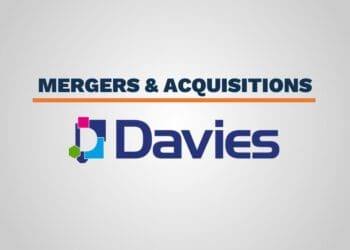with contributing authors Carolyn Robbs Bilanko and Chelsea Carbone
In order to preserve the attorney-client privilege, counsel who conduct internal investigations begin employee interviews with an “Upjohn Warning” — a disclosure indicating that counsel represents the employer, not the employee, that the content of the interview is privileged and that the privilege belongs solely to the employer. On October 20, counsel responsible for conducting internal investigations in Washington received a shock that could dramatically restrict their ability to interview their clients’ former employees.
The State Supreme Court adopted a rarely-affirmed position and held that the attorney-client privilege does not extend to postemployment communications between former employees and counsel representing the former employer. See Newman v. Highland Sch. Dist. No. 203, 381 P.3d 1188 (Wash. 2016). This bright line rule is a deviation from the flexible approach — and internal investigation common practice — set forth by the U.S. Supreme Court in Upjohn Co. v. United States, 449 U.S. 383 (1981).
In Upjohn, the Supreme Court ruled that the privilege applies to communications between corporate counsel and nonmanagerial employees, as opposed to only those between corporate counsel and members of the corporation’s control group. In addition, the Court held that a case-by-case analysis must be applied to determine whether application of the privilege in the corporate context would serve to promote the underlying purpose of the privilege — namely, “to encourage full and frank communication between attorneys and their clients.” Id. at 389.
While the Washington Supreme Court previously adopted the Upjohn flexible approach with respect to nonmanagerial employees, whether the privilege extended to postemployment communications with former employees was an issue of first impression before the court. In reaching its holding in Newman, the court noted that “[t]he flexible approach articulated in Upjohn presupposed attorney-client communications taking place within the corporate employment relationship.” 381 P.3d at 1192. The court then declined to extend the privilege to postemployment communications with former employees and determined that the concerns that arise with respect to former employees are categorically different than those identified in Upjohn (which addressed current employees). For example, once the employment relationship is terminated, the former employee can no longer bind the employer as its agent and no longer owes its employer the duties of loyalty, obedience and confidentiality.
Based on these changed circumstances, the court concluded that a former employee is no different than any other third-party fact witness. The Newman Court relied on an Eastern District of Michigan case in reaching this conclusion. See Infosystems, Inc. v. Ceridian Corp., 197 F.R.D. 303, 305 (E.D. Mich. 2000) (quoting Clark Equip. Co. v. Lift Parts Mfg. Co.,1985 WL 2917, at *5 (N.D. Ill. Oct. 1, 1985)). In limiting the scope of the privilege to communications that occur prior to the termination of the employer-employee relationship, the Newman Court found that the purpose of the privilege is sufficiently preserved. Pairing the end of the privilege with the end of the employment relationship also creates a bright line that preserves predictability for all parties involved.
Washington’s break from most other courts was highlighted by Justice Wiggins’ dissent, which pointed out that “7 of the 86 employees interviewed by corporate counsel in Upjohn had left employment prior to being interviewed.” Newman, 381 P.3d at 1196. Justice Wiggins further noted that “the majority’s focus on the formalities of the relationship between the employee and the corporation as the standard for the attorney-client privilege misses the point of the Upjohn Court’s functional framework.” Id.
Newman should be considered at the outset of any litigation or internal investigation conducted in Washington state and counsel should proceed with caution when extending any postemployment communication to former employees.



 Phil Bezanson is a partner at Bracewell LLP in Seattle, where he represents corporate clients, senior management and boards of directors, as well as individual clients in internal investigations, securities enforcement, criminal defense and regulatory matters. Phil is a member of the Bracewell LLP team that has worked on recent high-profile and complex cases, including the Deepwater Horizon explosion; the George Washington Bridge lane closure; General Motors’ ignition switch investigations; “Pay to Play” cases in New York, New Mexico and Illinois; the stock options backdating cases; and a variety of matters involving the Foreign Corrupt Practices Act, accounting and public disclosure practices at publicly traded companies and trading desks at financial institutions.
Phil Bezanson is a partner at Bracewell LLP in Seattle, where he represents corporate clients, senior management and boards of directors, as well as individual clients in internal investigations, securities enforcement, criminal defense and regulatory matters. Phil is a member of the Bracewell LLP team that has worked on recent high-profile and complex cases, including the Deepwater Horizon explosion; the George Washington Bridge lane closure; General Motors’ ignition switch investigations; “Pay to Play” cases in New York, New Mexico and Illinois; the stock options backdating cases; and a variety of matters involving the Foreign Corrupt Practices Act, accounting and public disclosure practices at publicly traded companies and trading desks at financial institutions.









